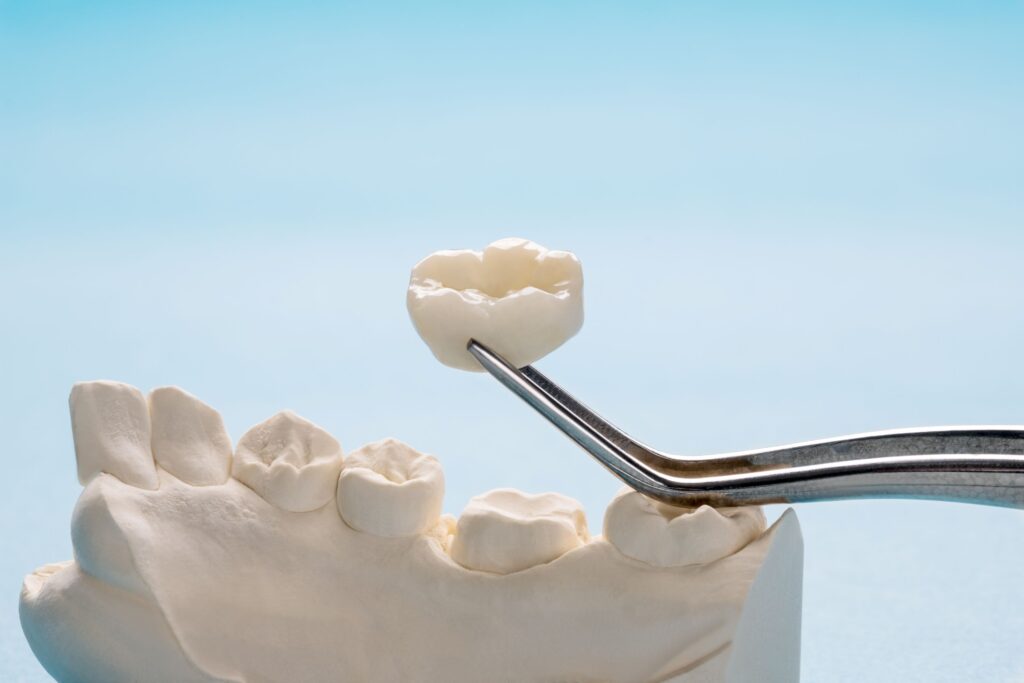
Damaged and decayed teeth can detract from your daily life in several ways. Not only might you experience sensitivity or aches, but you could also sustain additional damage, cut the tender tissues inside your mouth, or feel self-conscious about how you look if it’s easily noticeable.
Dental crowns are the standard treatment for severely injured teeth, but many patients want to know how long their restoration will last before committing to treatment. Continue reading to learn more about their longevity and what to expect.
What Are Dental Crowns?
Dental crowns are tooth-shaped caps that can be cemented over teeth with cavities or other structural damage. However, they are a versatile solution and can also be used to cap dental implants, anchor a dental bridge, protect a tooth that underwent a root canal, or reshape stunted or worn-down teeth.
These prosthetics are typically made from resilient porcelain that reflects light like enamel and can be customized to match the shape, size, and hue of your natural teeth. It’s intended to look and feel as lifelike as possible once it’s cemented in place, and isn’t intended to be removed.
How Long Do Dental Crowns Last?
Typically, these restorations last anywhere from 10 to 15 or more years, though it depends significantly on your unique circumstances. There are several factors that can potentially impact your dental crown’s lifespan, such as:
- Where it’s located. Caps covering molars sustain additional pressure from biting and chewing that can wear them down faster.
- Its purpose. It won’t decay, but if it’s cemented to an injured tooth, the underlying structure might erode and destabilize it.
- Your diet. Eating overly hard, crunchy, or sticky foods could chip, crack, push, or yank it, causing harm.
- Other habits. Drinking alcohol can dissolve the cement holding it in place so it’s best to minimize your consumption. Also, smoking cigarettes and vapes can damage the teeth and gums supporting it, contributing to failure.
How Can I Maintain My Dental Crown?
Thankfully, it’s not too hard to keep your restoration in good condition. Brushing and flossing twice daily help remove plaque and bacteria that can cause common oral problems, which may interfere with its success.
You should also eat wholesome foods to support your oral and overall health, and visit your dentist every six months for a routine checkup and cleaning. This allows your provider to monitor your oral health so they can catch and treat any areas of concern, like a wobbly dental crown, before the problem progresses.
Taking care of your dental crown correctly helps it protect and preserve your grin for years to come!
About the Practice
At Esplanade Dental Care, people of all ages benefit from three dentists passionate about helping families in Downers Grove build and maintain happy, healthy smiles. Dr. Albert, Dr. Snow, and Dr. Feller collaborate to provide a comprehensive menu of services at one convenient location, taking the time to get to know you so they can tailor treatment plans to your unique needs. Then, they combine state-of-the-art technology with a caring approach to provide comfortable, accurate results intended to last. If you have a damaged tooth that needs help, you can request an appointment on the website or call (630) 493-0914.

